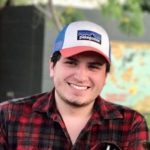Researchers Compared Mask-Wearers to the Unmasked, Journals Reportedly Refused To Publish Their Monumental Finding
The results of a massive study on the effectiveness of masks were just released, and the findings were so narrative-shattering that several reputable scientific journals reportedly refused to publish them.
The trial, DANMASK-19, is now throwing a giant question mark on restrictive mask mandates that many leaders in the United States have imposed.
Conducted in Denmark during the country’s spring 2020 battle with COVID-19, the study, which had 6,024 adult participants and was only published Wednesday in the Annals of Internal Medicine, reveals how little protection masks truly give their wearers.
According to the study, the unmasked control group had a 2.1 percent infection rate, while those who were told to wear a mask when not at home — the latter group was given “50 three-layer, disposable, surgical face masks with ear loops” — only suffered a 1.8 percent infection rate.
The difference here is negligible — less than half of a percentage point separates the two extremes of mask-wearers and those who did not don the face coverings. (A total of 4,862 people completed the study, which took place at a time when Danish authorities did not recommend that the general public wear masks, with 42 people testing positive for COVID-19 in the mask-wearing group and 53 people in the control group.)
“These findings do offer evidence about the degree of protection mask wearers can anticipate in a setting where others are not wearing masks and where other public health measures,” researchers wrote, “including social distancing, are in effect.”
Dr. Henning Bundgaard, a cardiologist at the University of Copenhagen and the study’s lead author, put it more bluntly.
“Our study gives an indication of how much you gain from wearing a mask,” he told The New York Times. “Not a lot.”
Christian Torp-Pedersen, chief physician in the research department at North Zealand Hospital and one of the researchers involved in the study, told the Danish newspaper Berlingske that the Journal of the American Medical Association, the New England Journal of Medicine and The Lancet all refused to publish the narrative-shattering discovery.
While masks don’t appear to offer wearers much extra protection, they do excel in preventing transmission to others.
Viruses from both symptomatic and asymptomatic people have a harder time making it to a new host if the infected person is wearing a mask.
“Reduction in release of virus from infected persons into the environment may be the mechanism for mitigation of transmission in communities where mask use is common or mandated, as noted in observational studies,” the study states. “Thus, these findings do not provide data on the effectiveness of widespread mask wearing in the community in reducing SARS-CoV-2 infections.
“They do, however, offer evidence about the degree of protection mask wearers can anticipate in a setting where others are not wearing masks and where other public health measures, including social distancing, are in effect.”
This groundbreaking study suggests masks may be better suited to a role in the so-called “Swiss cheese” method of COVID prevention instead of being the focus of mandates and orders from authoritarian government leaders.
The “Swiss cheese” model was popularized earlier this year as an easy visual that explains how masks, testing and quarantining are all components of a successful defense against the virus.
The theory behind the model is that no one measure, depicted as single slices of the holey cheese, will completely defeat the novel coronavirus. Layer enough of these however, and the growth of new infections can seemingly be stemmed.
A new version with colour & division inspiration from @uq_news and strict mouse design oversight by @kat_arden (ver3.0).
It reorganises slices into personal & shared responsibilities (think of this in terms of all the slices rather than any single layer being most important) pic.twitter.com/nNwLWZTWOL— ɪᴀɴ ᴍ. ᴍᴀᴄᴋᴀʏ, ᴘʜᴅ ?????? (@MackayIM) October 24, 2020
While it’s becoming clear that face masks are not the golden bullet that government leaders treat them as, the protective coverings undoubtedly play an important role in the fight against COVID-19.
Truth and Accuracy
We are committed to truth and accuracy in all of our journalism. Read our editorial standards.
Advertise with The Western Journal and reach millions of highly engaged readers, while supporting our work. Advertise Today.












